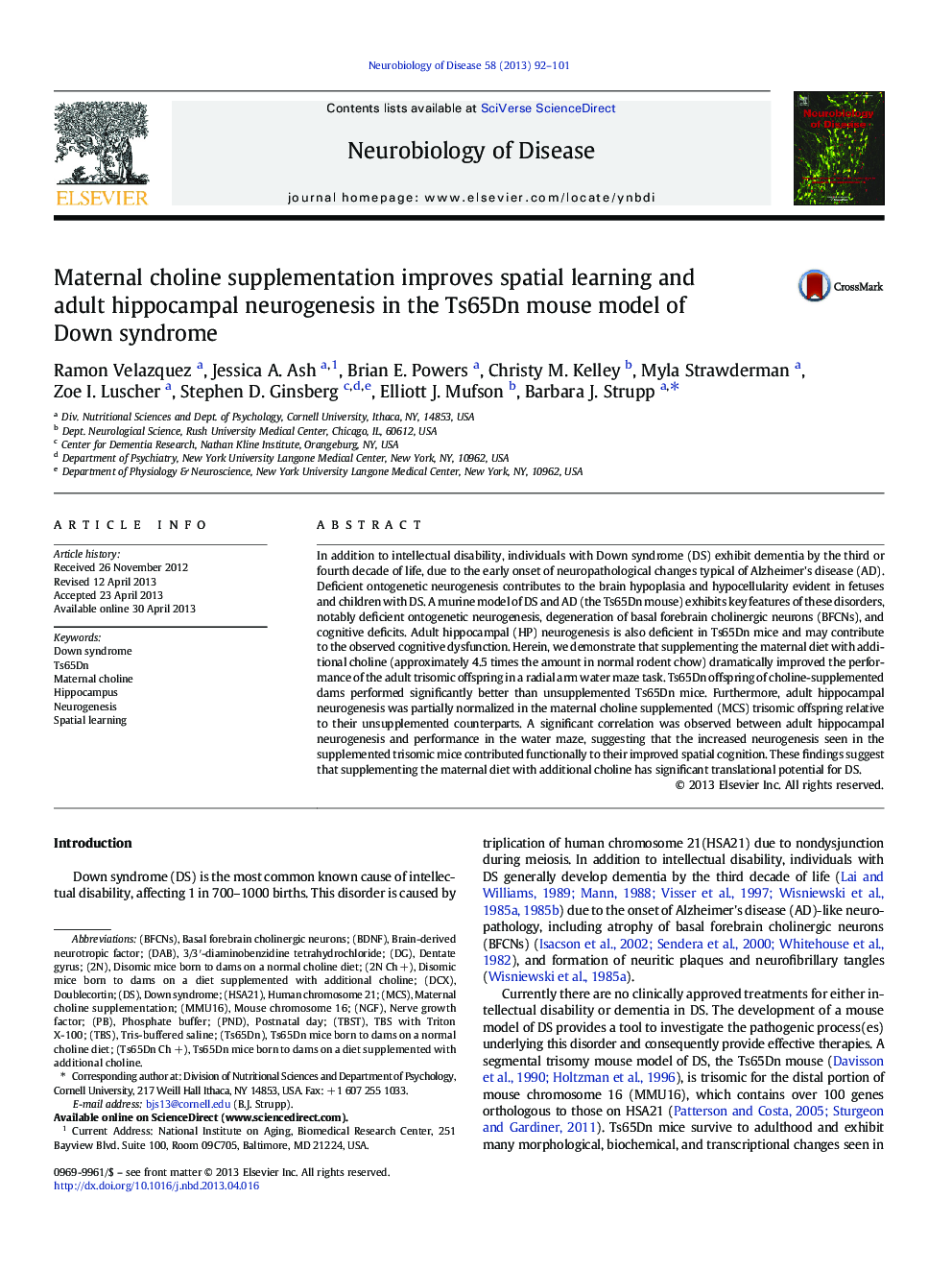| Article ID | Journal | Published Year | Pages | File Type |
|---|---|---|---|---|
| 6022217 | Neurobiology of Disease | 2013 | 10 Pages |
Abstract
In addition to intellectual disability, individuals with Down syndrome (DS) exhibit dementia by the third or fourth decade of life, due to the early onset of neuropathological changes typical of Alzheimer's disease (AD). Deficient ontogenetic neurogenesis contributes to the brain hypoplasia and hypocellularity evident in fetuses and children with DS. A murine model of DS and AD (the Ts65Dn mouse) exhibits key features of these disorders, notably deficient ontogenetic neurogenesis, degeneration of basal forebrain cholinergic neurons (BFCNs), and cognitive deficits. Adult hippocampal (HP) neurogenesis is also deficient in Ts65Dn mice and may contribute to the observed cognitive dysfunction. Herein, we demonstrate that supplementing the maternal diet with additional choline (approximately 4.5 times the amount in normal rodent chow) dramatically improved the performance of the adult trisomic offspring in a radial arm water maze task. Ts65Dn offspring of choline-supplemented dams performed significantly better than unsupplemented Ts65Dn mice. Furthermore, adult hippocampal neurogenesis was partially normalized in the maternal choline supplemented (MCS) trisomic offspring relative to their unsupplemented counterparts. A significant correlation was observed between adult hippocampal neurogenesis and performance in the water maze, suggesting that the increased neurogenesis seen in the supplemented trisomic mice contributed functionally to their improved spatial cognition. These findings suggest that supplementing the maternal diet with additional choline has significant translational potential for DS.
Keywords
Related Topics
Life Sciences
Neuroscience
Neurology
Authors
Ramon Velazquez, Jessica A. Ash, Brian E. Powers, Christy M. Kelley, Myla Strawderman, Zoe I. Luscher, Stephen D. Ginsberg, Elliott J. Mufson, Barbara J. Strupp,
